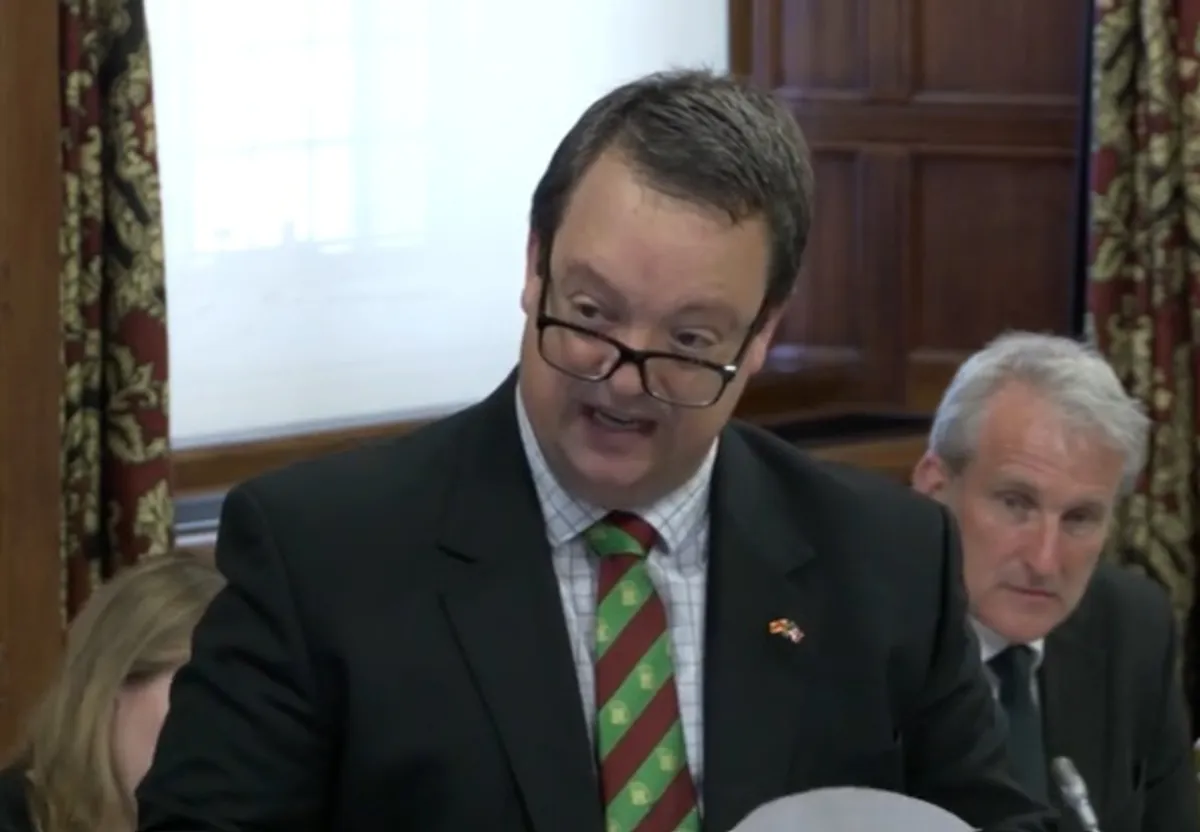By Beverly Rademacher
Conservative MP Mike Wood spoke in a Westminster Hall Debate in Parliament on Tuesday (July 1) to call for extra support for hospitality businesses following Government changes to fiscal policy implemented in recent months.
Opening the Government Support for the Hospitality Sector debate, he told how businesses have been hit hard by the slashing of Business Rates Relief, the increase of the national living wage and the rate of National Insurance (NI) paid by employers.
Outlining the stark challenges facing hospitality businesses, Mr Wood said the changes are forecast to cost the sector £3.4 billion, according to UK Hospitality.
He added: “The Office of National Statistics confirmed since the budget in October the hospitality sector had already shed 69,000 jobs even before the latest figures from HMRC – that’s 3.2 per cent of all hospitality jobs, the overall economy had lost 1.2 per cent of jobs in the same period. Hospitality’s job losses were 266 per cent higher relative to the national average.”
In an effort to hear directly from local entrepreneurs, Mr Wood said he had visited a range of hospitality businesses across his Kingswinford and South Staffordshire constituency to speak to business owners about the challenges they face.
The MP said: “From pubs and restaurants to hotels and leisure centres, hospitality is more than just a convenience, it’s the beating heart of our communities.
“The cut in business rate relief from 75 per cent to 40 per cent has driven otherwise viable businesses into the red, hitting pubs such as the Green Man in my constituency, which has seen its business rates bills rise from about £140 a month to nearly £350 a month – before a single customer has been served or a single pint pulled. A third of hospitality businesses now operate at a loss. That is not sustainable, and it is not fair.”
He said the rise in employer NI contributions and the increase in the National Living Wage, arriving at the same time in April, had heaped more pressure on small businesses as he outlined how venues, such as the hugely popular Ashwood Nurseries in Kingswinford, “already operate on tight margins”.
He went on: “A third of hospitality businesses report they are operating at a loss with jobs lost, hours cut, investment cancelled and sadly many businesses closing.”
But he stressed: “Hospitality is not asking for handouts, it is asking for a level playing field. The sector is resilient. After the 2008 crash and during Covid it helped to revive communities and to restore confidence and within the right framework it can do so again, with the potential to grow, create half a million jobs by 2030 and to breathe life into areas across the country. To do that the brakes must be taken off.”
He said “there are simple steps the Government can take now” – as he called for a raft of measures to help the sector.
The MP said “hospitality is being taxed out of existence” and called for urgent changes in policy including proper reform of business rates introduced quickly, the scrapping of the proposed additional levy on larger hospitality businesses, the creation of a new lower rate of NI contributions for those earning between £5,000 and £9,100 to make it easier to hire again, charging lower duty on draught beer in casks and kegs than bottles and cans and to reschedule the terms of Covid loans.
Gareth Thomas, Parliamentary Under-Secretary of State for Business and Trade, said in response: “I fully understand the significant challenges the sector faces, many of which are a hangover from the pandemic lockdown restrictions and the cost of living crisis. Depleted cash reserves and increased debt levels have hampered the ability of many hospitality businesses to invest and grow. These challenges are sometimes not helped by a regulatory landscape that does not always function as effectively as it could, holding back growth from many hospitality operators, which simply want to grow and invest in their local communities.
“Let us not forget that this Government inherited a very challenging fiscal situation, which meant the Chancellor had to take difficult decisions in relation to tax and spending.
“I know that many hospitality businesses have been impacted by those tough choices, but they are important for delivering the long-term stability and growth that our country needs and that our hospitality businesses, as well as the rest of the economy, will benefit from in the long run.”
He said the Chancellor has committed to reforming business rates from 2026-27, with a permanently lower multiplier for retail, leisure and hospitality businesses and added: “We all know hospitality businesses are fundamental. They are crucial to our economy, crucial to our communities and fundamental to our high streets. And they matter to all of us individually, to our friends and to our families. The Government recognises the role of hospitality in creating places that people want to live, to work and to invest in, and we will continue to work in partnership with the industry to deliver growth and to break down barriers to opportunity.”
There were 174,000 hospitality businesses in the UK in March 2024 – 6.4 per cent of all businesses in the UK.
